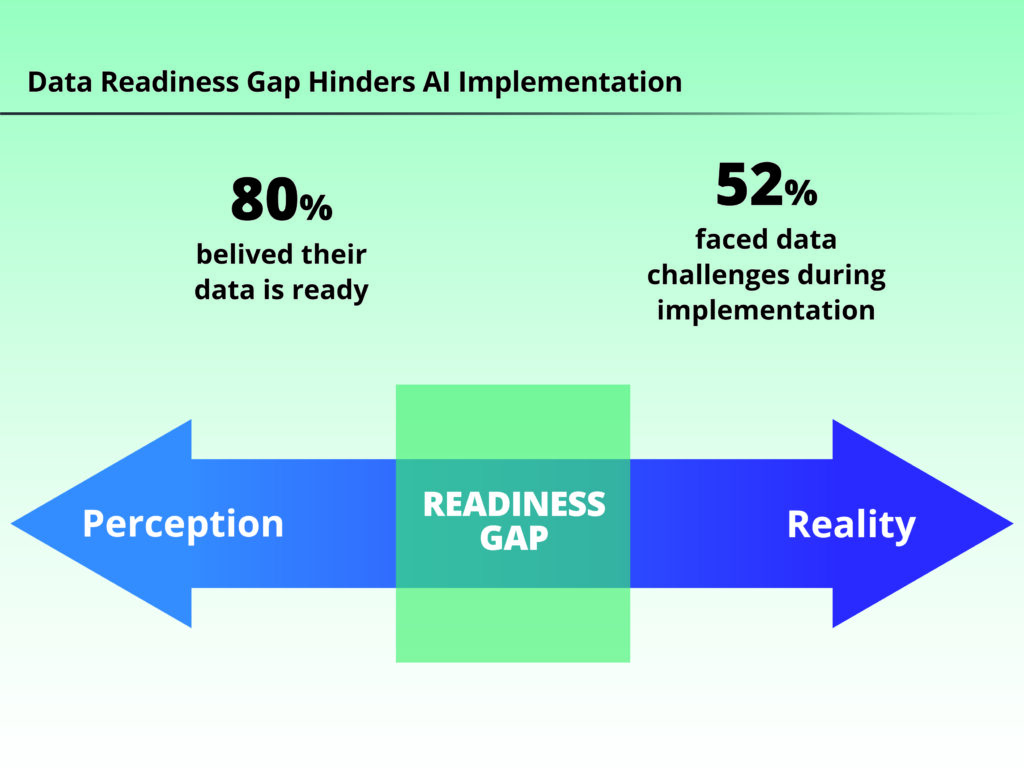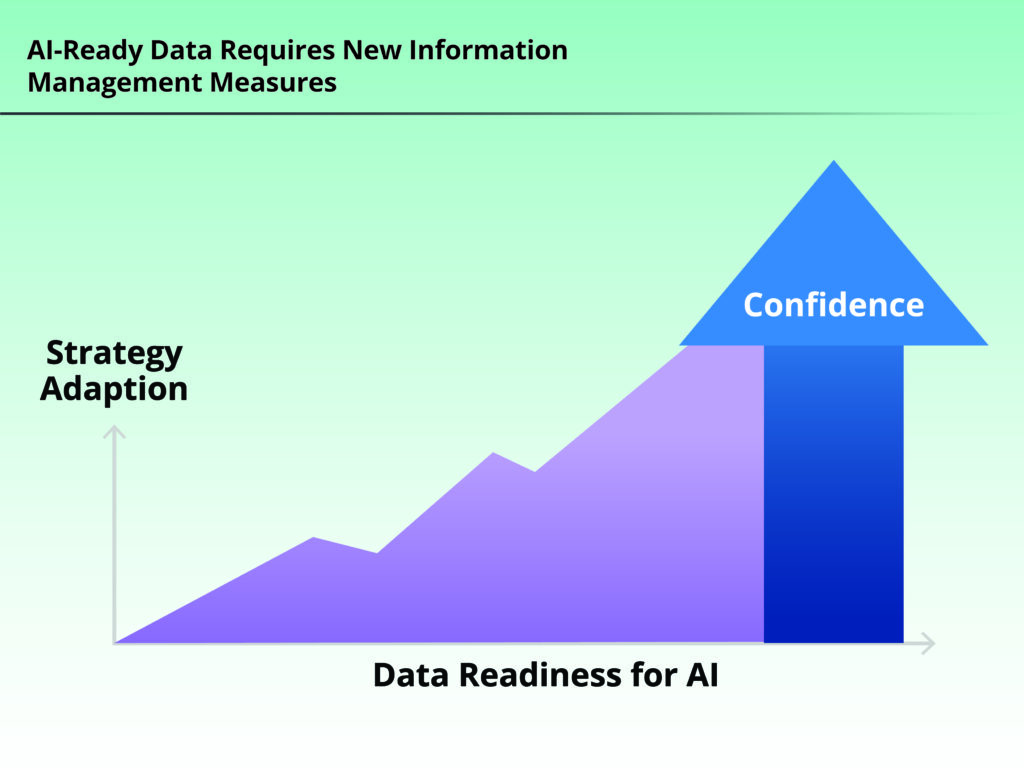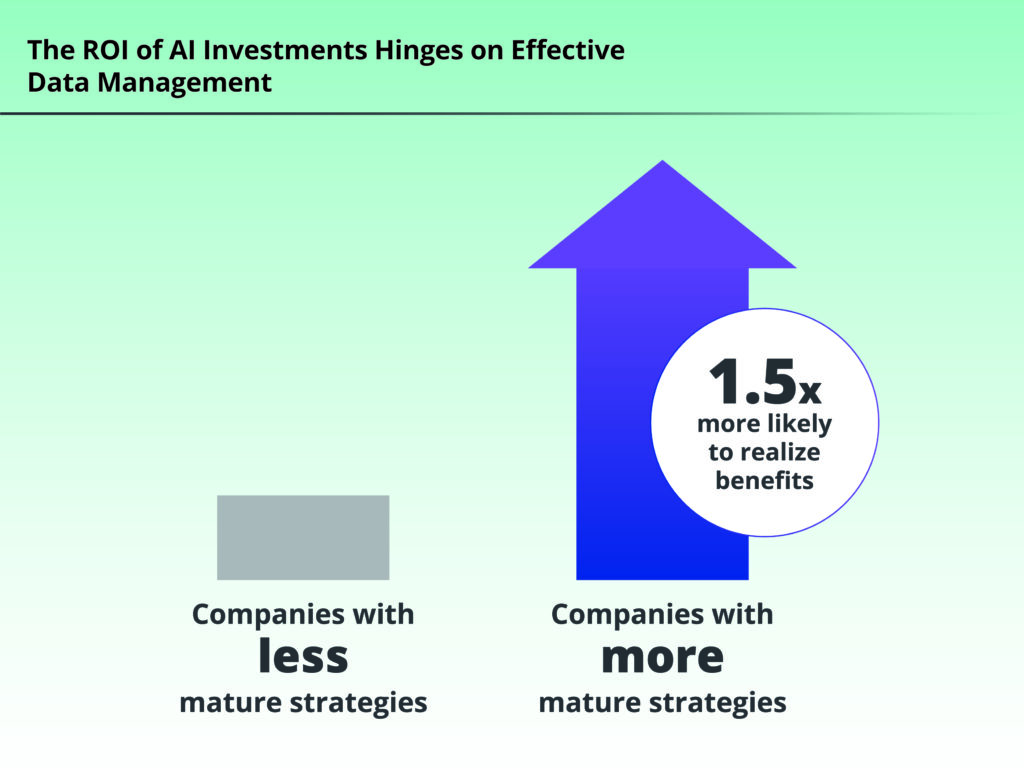Unlocking AI Success: Insights from the AI and Information Management Report

Artificial Intelligence (AI) is transforming businesses unprecedentedly, unleashing new opportunities and insights that drive growth and innovation. However, a new report from AvePoint reveals that most organizations are struggling to realize the full potential of AI due to data readiness and information management challenges.
Based on insights from over 750 business leaders across 16 countries and 10 industries, the AI and Information Management Report, with research conducted by Qualtrics and analyzed and published by AvePoint, evaluates the measures organizations are taking to manage their data in the context of AI implementation, explores the impact of information management strategies on AI success, and offers strategies to overcome common obstacles.
Let’s dive in and explore the top three findings from the report that shed light on the challenges and opportunities of AI adoption and offer insights into how businesses can better prepare for AI success.
Key Finding: Data Readiness Gap Hinders AI Success
A substantive 88% of organizations reported feeling prepared for AI adoption. However, the report shows that a staggering 95% experience challenges during implementation. One of the biggest issues? Organizations are overestimating their data quality as it relates to readiness for AI.
While 80% believed their data was AI-ready, over half (52%) struggled with internal data quality and organization issues when deploying AI models and applications.
This highlights a fundamental disconnect between perceived readiness and reality when it comes to having data in the right state for successful AI implementations. As the report states: “AI is only as good as the data it’s trained on.”

Compounding these challenges, 71% of organizations are apprehensive about their ability to navigate the data privacy and security challenges ahead. And alarmingly, more than half of the leaders we surveyed said their organizations are using public AI tools without an AI Acceptable Use Policy in place, leaving staff without clear guidance on how to navigate the complexities of AI tools safely and effectively.
Key Finding: Inadequate Information Management Strategies Contribute to Poor Data Quality
The findings suggest that gaps in information management strategies and practices are a key factor in the data readiness issue. Although 88% of organizations claim to have an information management strategy, many lack essential components like archiving policies, data retention, lifecycle management, and automation capabilities.
This paradox indicates a gap between current information management strategies and the practical solutions required to overcome today’s data challenges. Survey responses highlight that only half of organizations actively enforce a data retention policy, and just 29% of organizations leverage automation in most aspects of their information management strategy. And with data stores only growing, organizations that are not taking advantage of automation to manage their information risk falling further behind.
The consequences are severe: organizations with less mature information management strategies were not only less confident in their data readiness for AI, but also more doubtful about AI’s potential impact on their business.
On the other hand, organizations taking a proactive approach were better positioned for success. Companies willing to enhance data quality and information management in response to AI expressed the highest confidence levels in data readiness.

Therefore, it’s essential for organizations to bridge the gap between information management strategy and current practices to fully realize the benefits of AI.
Recommended Reading: Leveraging AI for Information Management: Striking a Balance Between Benefits and Risks
Key Finding: The ROI of AI Investments Hinges on Effective Data Management
Only 43% of organizations in the study are very confident in the accuracy of their AI output. As more and more work is supported by AI – already, AI supports on average 25% of respondents’ work – it will become more difficult to discern quality from low-quality or even inaccurate output. Effective data management lays the groundwork for successful AI implementations by ensuring that data is not only accessible but also accurate, relevant, and timely. Good decisions can only be made on good and valuable data, and this is more imperative than ever when using advanced AI tools.
The report also found a strong correlation between information management maturity and achieving benefits from AI investments.
Organizations with robust strategies were 1.5 times more likely to realize advantages like improved efficiency, better decision-making, and resource optimization.

Not surprisingly, 80% of organizations are planning to increase AI spending in 2024. As AI adoption accelerates, organizations that invest in data governance, data quality management, and data integration capabilities will be better positioned to harness the full potential of AI technologies in driving strategic objectives and delivering tangible business outcomes.
The Bottom Line
The AI and Information Management report makes it clear: the road to AI success lies in getting data readiness right through strong information management capabilities. Organizations ignoring this foundational element risk stalling their AI ambitions before they even get started.
By addressing the data readiness challenge head-on and embracing a strategic approach to information management, organizations can unlock AI’s full potential to drive growth, innovation, and competitive advantage in the digital age.
Download the full AI and Information Management Report now to gain valuable insights and actionable recommendations for conquering the data dilemma and achieving sustainable AI success.
Kayla Haskins is a Content Marketing Manager at AvePoint, writing about all things cloud collaboration – including Power Platform, Microsoft 365, Google Workspace, and Salesforce. An advocate of operational governance and process automation, Kayla creates content that helps businesses manage technology to drive efficiencies in the modern workplace and make work/life balance a reality.




